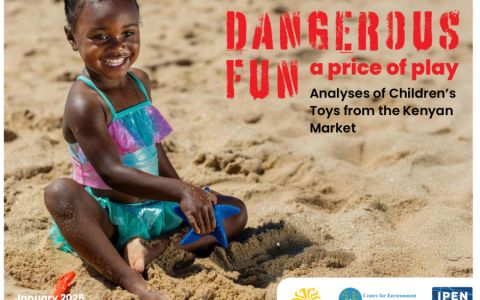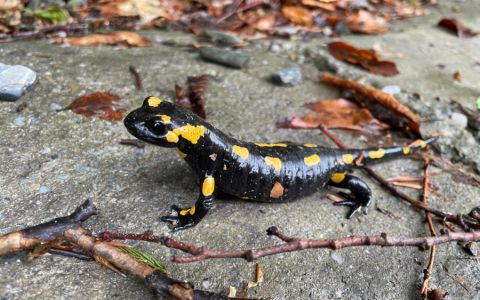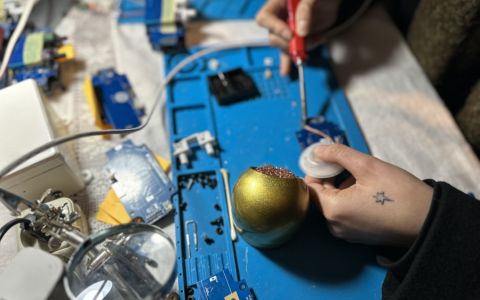Students of the Wageningen University, The Netherlands, organised a discussion on greenery in the capital city, in Prague Mánes restaurant today. The meeting formed part of a research project carried out in cooperation with Arnika Association. Thirty students from thirteen countries participate in it. Its aim is to map the situation of Prague greenery, and to formulate recommendations for the future. The students learn interdisciplinary cooperation on a real problem. Subsequently, Arnika will use results of the research for promotion of better approach to Prague green areas, and will hand them over to the Metropolitan Authority, as well as the city districts.
Teacher of the Wageningen University Karen Fortuin is delighted with development of the project. „When we arrived to Prague two weeks ago and travelled through the city by bus, it seemed that there was no problem. We saw so much green. However, when the students investigated the issue further, they learnt that there is much more to it than is seen at first sight,“ says the teacher.
On today's discussion, students presented preliminary results of their research. Now, they will process statistical data and other base materials. The final version of the study on Prague greenery will be published in July.
„From an educational perspective the project has been a success so far, because the students have learnt a lot. At first they were overwhelmed by the amount of – sometimes contradictory – information. However, in the second week they started to analyze the data and found some interesting results,“ says Karen Fortuin. Also the students agree that investigation of Prague greenery was interesting to them. „Now we are in Prague and it is even more interesting than when we were doing preparations still in Wageningen. We are really walking in the parks and see the places personally,“ says student Charlotte van Erp Taalman Kip.
A Slovak participant in the project Ivana Bílková was fascinated by the variety of perspectives of the students from various countries on the Czech society. „We experienced problems also with the fact that people were reluctant to participate in questionnaire investigation,“ says Bílková. „When we started to ask questions in English, the respondents were much more willing to answer them.“ Anna Veldhoen, from The Netherlands, confirms that it was not difficult to find people who wanted to fill in questionnaires. However, she was surprised that it was very hard to find people to participate in an interview.
Students had to face contradictory information during their research. Marjolein Duijf, from The Netherlands, notes: „We had an interview with representatives of the municipality and they told us that they cooperate very well with NGOs. But later we had an interview with an NGO and they said they don’t cooperate.” According to a Czech student, Jana Kozáková, some respondents even accused the municipality of lying and concealing information.
Arnika Association, participating in the project, will use its results to promote better approach to greenery. „The carried out analysis is of high quality. The students assessed the problems of greenery without prejudice, and their work was professional. A perspective from outside is a valuable reflection for us. Whereas, in The Netherlands, for example, felling of healthy trees can be hardly imagined, in Prague this takes place commonly,“ said Martin Skalský from Arnika. „After the study is finished, we will hand it over to the individual city districts as well the Metropolitan Authority, and require concrete measures,“ added Skalský.
The Wagening University cooperates with The Czech University of Life Sciences, and its students visited Prague in the last year already. In cooperation with the Ministry of Environment, they developed the idea of a green belt around Prague. During this year's investigation of Prague greenery, the student team was divided into five groups working at various topics from legislation and ecology to forms of public participation in decision making. In this way, the students verify their theoretical knowledge in practice, and learn interdisciplinary cooperation. The research does not differ from real work of consultation agencies.
Some of preliminary conclusions of the student project:
* Improving air quality;
* Reducing noise;
* Catching rain water;
* Regulating microclimate;
* Creating shelters for animals and other plants.
2.






